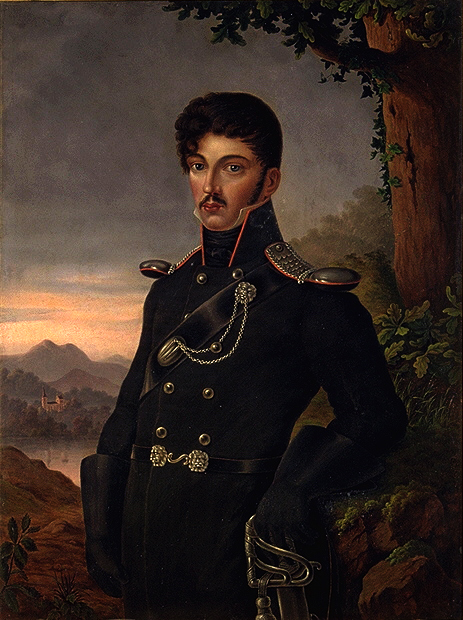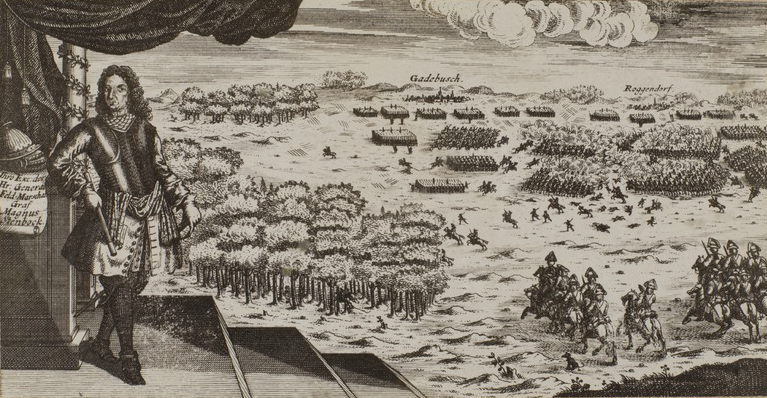|
Gadebusch
Gadebusch () is a town in Mecklenburg-Western Pomerania in the district of Nordwestmecklenburg. Halfway between Lübeck, Schwerin and Wismar, it is part of the Hamburg Metropolitan Region. The town is known for two notable monuments: the ''Stadtkirche'' (City Church), built in 1220, considered the oldest brick church in Mecklenburg, and the ''Schloss'' (Castle), built in 1580–1583 in Northern Renaissance style. Near the town is the site of the Battle of Gadebusch in 1712. Gadebusch municipality Besides the old town of Gadebusch, the following settlements are incorporated with the Gadebusch municipality: * Amtsbauhof * An der Flöte * Buchholz * Dorf Ganzow * Güstow * Güstow Werder * Hof Ganzow * Jarmstorf * Klein Hundorf * Möllin * Neu Bauhof * Neu Güstow * Reinhardtsdorf * Stresdorf * Wakenstädt EducationGymnasium Gadebusch (High School)
|
Battle Of Gadebusch
The Battle of Gadebusch or Wakenstädt (20 December 1712) was Sweden's final great victory in the Great Northern War. It was fought by the Swedes to prevent the Siege of Stralsund (1711–1715), loss of the city of Stralsund to Denmark, Danish and Saxony, Saxon forces. Prelude During 1712, all of Sweden's Dominions of Sweden, dominions south of the Baltic Sea, apart from forts, had been conquered by the allies Denmark, Saxony, and Russia. In the Baltic the Danish admiral Ulrik Christian Gyldenløve, Gyldenløve patrolled with a squadron to disrupt Swedish supply lines to the Continent. It was vital for Sweden not to lose Stralsund, as it was the gateway to campaigns in Poland. While a Danish army moved in the region of Hamburg, a large Russian-Saxon force stood south of Stralsund. Stenbock could hardly attack this force with a frontal assault, but hoped that by moving west towards Mecklenburg it could be encirclement, encircled or scattered. Such a movement would also prevent ... [...More Info...] [...Related Items...] OR: [Wikipedia] [Google] [Baidu] |
Nordwestmecklenburg
Nordwestmecklenburg (''Northwestern Mecklenburg'') is a ''Kreis'' (district) in the north-western part of Mecklenburg-Vorpommern, Germany. It is situated on the coast of the Baltic Sea and borders on Schleswig-Holstein to the west. Neighboring districts are (from east clockwise) Rostock, Ludwigslust-Parchim and the district-free city Schwerin, and the district Lauenburg and the district-free city Lübeck in Schleswig-Holstein. The district seat is the town Wismar. Geography The district is roughly situated in a triangle between the towns of Lübeck, Rostock and Schwerin. In the north there is the coast of the Baltic Sea with the small island of Poel. Lakes Two large lakes are partially situated in Nordwestmecklenburg: the eastern half of the Schaalsee () at the western border; and the northern half of the Schweriner See () in the south, as well as two smaller lakes, Bibowee () and Mechower See (). History Nordwestmecklenburg District was established in 1994 by merging the previ ... [...More Info...] [...Related Items...] OR: [Wikipedia] [Google] [Baidu] |
Agnes Karll
Agnes Caroline Pauline Karll (25 March 1868 – 12 February 1927) (also spelled as Agnes Karl) was a German nurse and a nursing reformer. She served as the third president of the International Council of Nurses from 1909 to 1912, and was an honorary member of the Association of Head Nurses in Great Britain and Ireland. Life and work Agnes Karll was born 25 March 1868 at Embsen, Germany, the daughter of Theodor Karll and his wife Ida. Her parents separated in 1881. Karll's first ambition was to become a teacher and attended Johanna Willborn's advanced training school in Schwerin, which put her in touch with the women's movement at the time and allowed her to meet German feminist Helene Lange. However, when she graduated, she was not eligible to take the teacher's examination because she was too young. She began working as an educator and private teacher in 1886 in Retgendorf (now Dobin am See) and Alt Gaarz. By the age of 19, Karll realized that teaching was not the professio ... [...More Info...] [...Related Items...] OR: [Wikipedia] [Google] [Baidu] |
Theodor Körner (author)
Carl Theodor Körner (23 September 1791 – 26 August 1813) was a German poet and soldier. After some time in Vienna, where he wrote some light comedies and other works for the Burgtheater, he became a soldier and joined the Lützow Free Corps in the German uprising against Napoleon. During these times, he displayed personal courage in many fights, and encouraged his comrades by fiery patriotic lyrics he composed, among these being the "Schwertlied" (Sword Song), composed during a lull in fighting only a few hours before his death, and "Lützows wilde Jagd" (Lützow's Wild Chase, or Hunt), each set to music by both Carl Maria von Weber and Franz Schubert. He was often called the "German Tyrtaeus." Early life He was born at Dresden, capital of the Saxon electorate, the son of the consistorial councillor Christian Gottfried Körner and his wife Minna Stock Körner. He was raised by his parents and by his aunt, the artist Dora Stock, who lived in the home. He attended the Kreuzsc ... [...More Info...] [...Related Items...] OR: [Wikipedia] [Google] [Baidu] |
Populated Places Established In The 13th Century
Population typically refers to the number of people in a single area, whether it be a city or town, region, country, continent, or the world. Governments typically quantify the size of the resident population within their jurisdiction using a census, a process of collecting, analysing, compiling, and publishing data regarding a population. Perspectives of various disciplines Social sciences In sociology and population geography, population refers to a group of human beings with some predefined criterion in common, such as location, race, ethnicity, nationality, or religion. Demography is a social science which entails the statistical study of populations. Ecology In ecology, a population is a group of organisms of the same species who inhabit the same particular geographical area and are capable of interbreeding. The area of a sexual population is the area where inter-breeding is possible between any pair within the area and more probable than cross-breeding with ind ... [...More Info...] [...Related Items...] OR: [Wikipedia] [Google] [Baidu] |
Cities And Towns In Mecklenburg
A city is a human settlement of notable size.Goodall, B. (1987) ''The Penguin Dictionary of Human Geography''. London: Penguin.Kuper, A. and Kuper, J., eds (1996) ''The Social Science Encyclopedia''. 2nd edition. London: Routledge. It can be defined as a permanent and densely settled place with administratively defined boundaries whose members work primarily on non-agricultural tasks. Cities generally have extensive systems for housing, transportation, sanitation, utilities, land use, production of goods, and communication. Their density facilitates interaction between people, government organisations and businesses, sometimes benefiting different parties in the process, such as improving efficiency of goods and service distribution. Historically, city-dwellers have been a small proportion of humanity overall, but following two centuries of unprecedented and rapid urbanization, more than half of the world population now lives in cities, which has had profound consequences for g ... [...More Info...] [...Related Items...] OR: [Wikipedia] [Google] [Baidu] |
Joerg Stadler
Joerg Stadler is a German actor. He played a captured German soldier, nicknamed "Steamboat Willie", in ''Saving Private Ryan'' (1998), and starred in Miguel Sapochnik Miguel Sapochnik (born 1 July 1974) is an English film and television director of Argentine origin, and former storyboard artist. For his work as a director on the HBO epic fantasy series ''Game of Thrones'', he won the award for Outstanding ...'s short film ''The Dreamer'' in 2001. Filmography References External links * Living people German male television actors German male film actors 1961 births {{Germany-screen-actor-stub ... [...More Info...] [...Related Items...] OR: [Wikipedia] [Google] [Baidu] |
Wolf Biermann
Karl Wolf Biermann (; born 15 November 1936) is a German singer-songwriter, poet, and former East German dissident. He is perhaps best known for the 1968 song "Ermutigung" and his expatriation from East Germany in 1976. Early life Biermann was born in Hamburg, Germany. His mother, Emma (née Dietrich), was a Communist Party activist, and his father, Dagobert Biermann, worked on the Hamburg docks. Biermann's father, a Jewish member of the German Resistance, was sentenced to six years in prison for sabotaging Nazi ships. In 1942, the Nazis decided to eliminate their Jewish political prisoners and Biermann's father was deported to Auschwitz concentration camp, where he was murdered on 22 February 1943. Biermann was one of the few children of workers who attended the Heinrich-Hertz-Gymnasium (high school) in Hamburg. After the Second World War, he became a member of the Free German Youth (Freie Deutsche Jugend, FDJ) and in 1950, he represented the Federal Republic of Germany at the ... [...More Info...] [...Related Items...] OR: [Wikipedia] [Google] [Baidu] |
Mecklenburg-Western Pomerania
Mecklenburg-Vorpommern (MV; ; nds, Mäkelborg-Vörpommern), also known by its anglicized name Mecklenburg–Western Pomerania, is a state in the north-east of Germany. Of the country's sixteen states, Mecklenburg-Vorpommern ranks 14th in population; it covers an area of , making it the sixth largest German state in area; and it is 16th in population density. Schwerin is the state capital and Rostock is the largest city. Other major cities include Neubrandenburg, Stralsund, Greifswald, Wismar, and Güstrow. It was named after the 2 regions of Mecklenburg and Vorpommern (which means West Pomerania). The state was established in 1945 after World War II through the merger of the historic regions of Mecklenburg and the Prussian Western Pomerania by the Soviet military administration in Allied-occupied Germany. It became part of the German Democratic Republic in 1949, but was dissolved in 1952 during administrative reforms and its territory divided into the districts of Rostock ... [...More Info...] [...Related Items...] OR: [Wikipedia] [Google] [Baidu] |
Theodor Körner By Dora Stock
Theodor is a masculine given name. It is a German form of Theodore. It is also a variant of Teodor. List of people with the given name Theodor * Theodor Adorno, (1903–1969), German philosopher * Theodor Aman, Romanian painter * Theodor Blueger, Latvian professional ice hockey forward for the Pittsburgh Penguins of the National Hockey League (NHL) * Theodor Burghele, Romanian surgeon, President of the Romanian Academy * Theodor Busse, German general during World War I and World War II * Theodor Cazaban, Romanian writer * Theodor Fischer (fencer), German Olympic épée and foil fencer * Theodor Fontane, (1819–1898), German writer * Theodor Geisel, American writer and cartoonist, known by the pseudonym Dr. Seuss * Theodor W. Hänsch (born 1940), German physicist * Theodor Herzl, (1860–1904), Austrian-Hungary Jewish journalist and the founder of modern political Zionism * Theodor Heuss, (1884–1963), German politician and publicist * Theodor Innitzer, Austrian Catholic car ... [...More Info...] [...Related Items...] OR: [Wikipedia] [Google] [Baidu] |
Northern Renaissance
The Northern Renaissance was the Renaissance that occurred in Europe north of the Alps. From the last years of the 15th century, its Renaissance spread around Europe. Called the Northern Renaissance because it occurred north of the Italian Renaissance, this period became the German, French, English, Low Countries, Polish Renaissances and in turn other national and localized movements, each with different attributes. In France, King Francis I imported Italian art, commissioned Italian artists (including Leonardo da Vinci), and built grand palaces at great expense, starting the French Renaissance. Trade and commerce in cities like Bruges in the 15th century and Antwerp in the 16th increased cultural exchange between Italy and the Low Countries, however in art, and especially architecture, late Gothic influences remained present until the arrival of Baroque even as painters increasingly drew on Italian models. Universities and the printed book helped spread the spirit of the age ... [...More Info...] [...Related Items...] OR: [Wikipedia] [Google] [Baidu] |
Brick
A brick is a type of block used to build walls, pavements and other elements in masonry construction. Properly, the term ''brick'' denotes a block composed of dried clay, but is now also used informally to denote other chemically cured construction blocks. Bricks can be joined using mortar, adhesives or by interlocking them. Bricks are usually produced at brickworks in numerous classes, types, materials, and sizes which vary with region and time period, and are produced in bulk quantities. ''Block'' is a similar term referring to a rectangular building unit composed of similar materials, but is usually larger than a brick. Lightweight bricks (also called lightweight blocks) are made from expanded clay aggregate. Fired bricks are one of the longest-lasting and strongest building materials, sometimes referred to as artificial stone, and have been used since circa 4000 BC. Air-dried bricks, also known as mud-bricks, have a history older than fired bricks, and have an additi ... [...More Info...] [...Related Items...] OR: [Wikipedia] [Google] [Baidu] |







